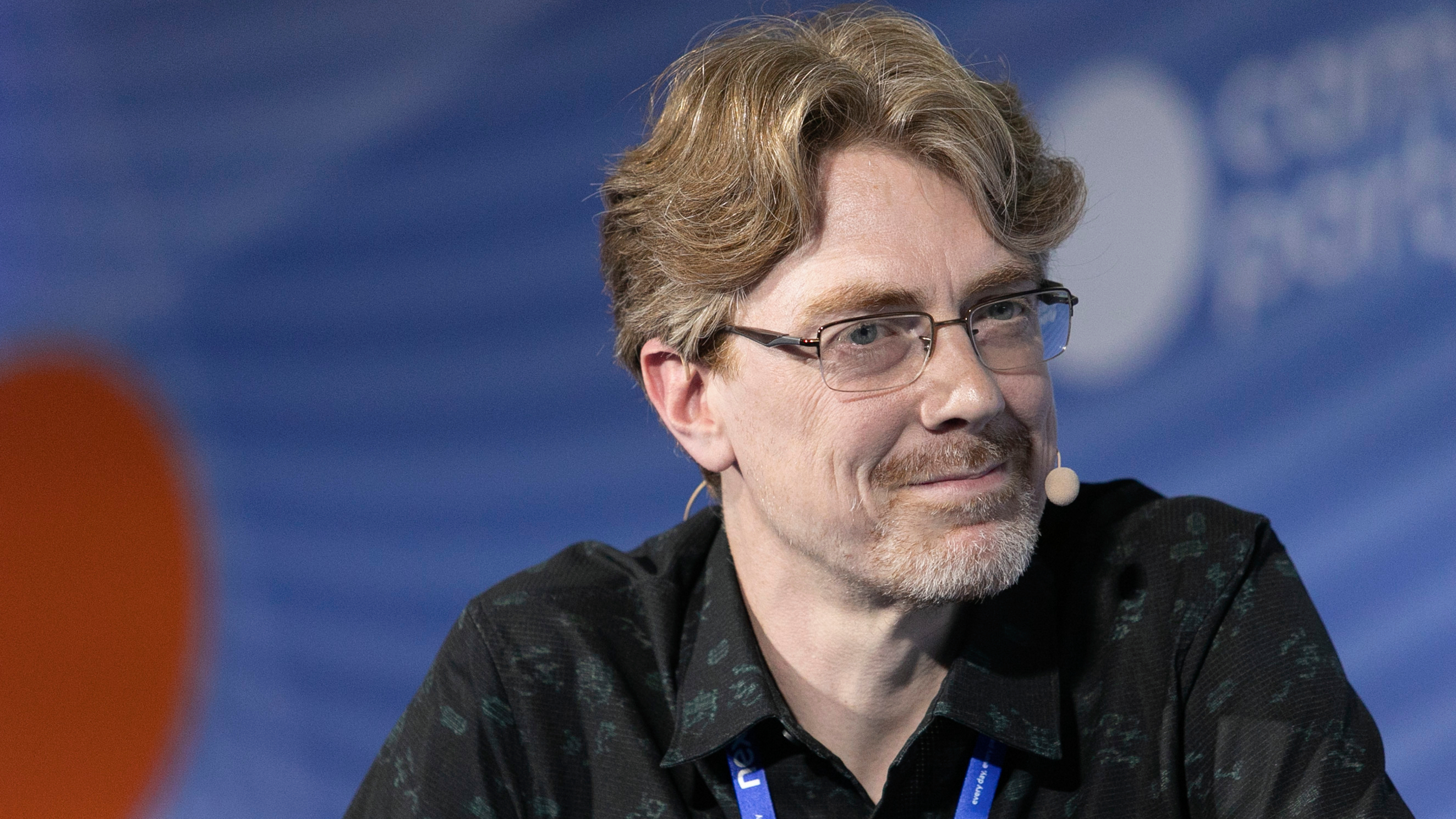
The Assassin's Creed Symphonic Adventure has recently played two nights in London to rapturous crowds. It marks the latest landmark event in the growing popularity of video game music that has seen such concerts grow in number over the past few years.
It also marked a new evolution of the kind of experience that video game music concerts can offer, with fully integrated and synchronized visuals complementing the music, as well as game plots successfully miniaturized into bitesize stories, to create something that’s especially immersive and exciting.
But the music has to come from somewhere. Recently, I sat down with legendary Assassin’s Creed composer Jesper Kyd to talk about what it’s like writing music for one of the biggest video game franchises in the world, how things have evolved with the series, and what it’s like to have written one of the most loved and recognizable video game themes ever committed to the medium.
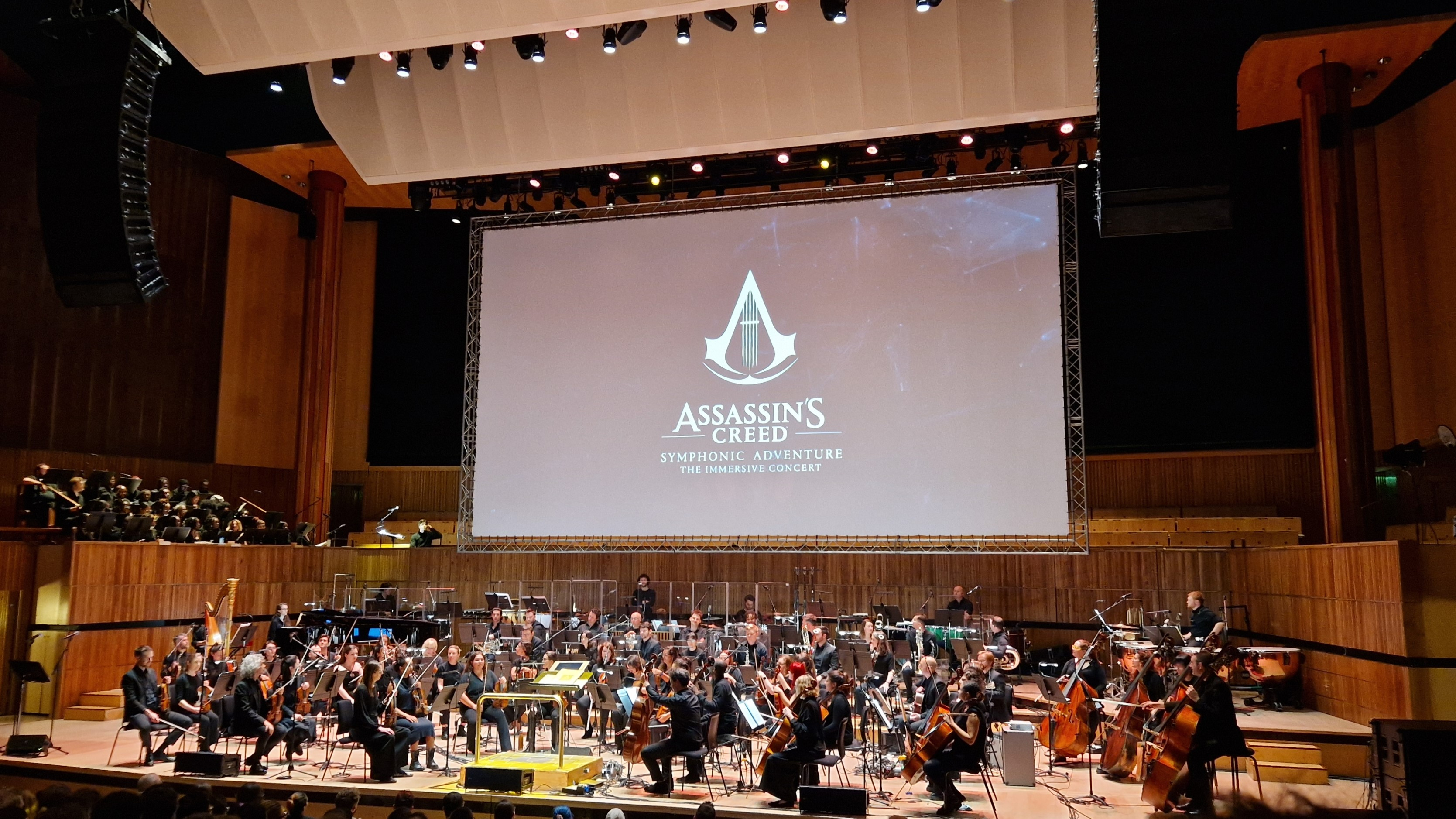
Music for the masses
Starting with the concert itself, I asked Kyd whether he ever thought he’d see a dedicated video game music event such as the Assassin's Creed Symphonic Adventure all those years ago when he was working on the first game. “I didn't, I never thought it would grow in ways and at the rate at which [video game music concerts] have been growing lately. The way that gamers are celebrating these franchises in opera houses, it's mind-boggling to think about”.
Enhancing this even more is the unique experience video game fans bring to live performances. “It is a totally different reaction and a totally different energy that's brought into these opera houses and I find it so refreshing”, he says. “I am a fan of going to opera houses and listening to symphonic works being performed, but this is something different. It's just unbelievable the energy that you get from these crowds. It's wonderful. I love it.”
Kyd’s relationship with Assassin’s Creed games and the wider series is a long and well-established one that has seen him compose music for the series on multiple games, including the 2020 behemoth that is Assassin's Creed Valhalla.
Much like in-game events that re-tread steps in history, Kyd, takes us back to how he first got involved with the series. “I was contacted back on Assassin's Creed 1 when Jade [Raymond, the game’s producer] and Patrice [Desilets, co-creator] were working on it. And I remember distinctly, they showed me concept art and I just couldn't believe the ambition. I couldn't believe that this could even be done.”
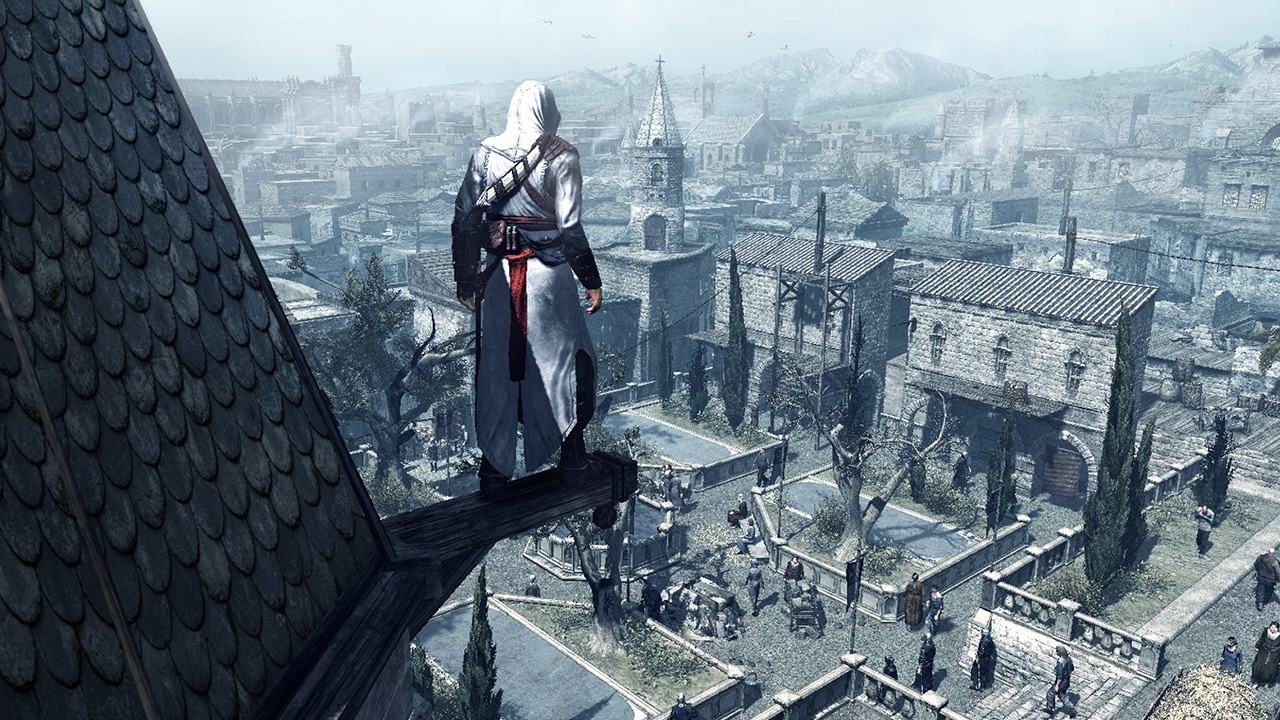
Back in 2007 the first game offered a big open world with expansive places to explore and came with multiple different facets to work on during development; and this spilled over into the music. “Assassin's Creed 1 was a hard score, right, because we had to figure everything out. The game was changing as I was writing the music, the team was figuring out what the game was.”
Each of these evolving systems and facets had to be taken into account for the score too; Kyd continues: “There's so many things to think about, there was music for eavesdropping, music for following people, music for the three different cities - Acre, Jerusalem, and Damascus.”
“And then you know, [there was] the whole thing about how the Animus affects the music… and when the screen starts tearing, and things are looking like you're pushing the Animus almost to the breaking point - that’s where the music was really electronic.”
However, this challenging process paved the way for a smoother ride down the line when the series would return with Assassin’s Creed 2, marking the beginning of the Ezio trilogy. “There was just so much we had to think about, and so much we had to invent, that by the time the second game came around all that stuff kind of became instinct because I understood what the game had become and understood where we were taking it. And so I could just kind of sit back a little bit and just concentrate on the music instead of the systems.”
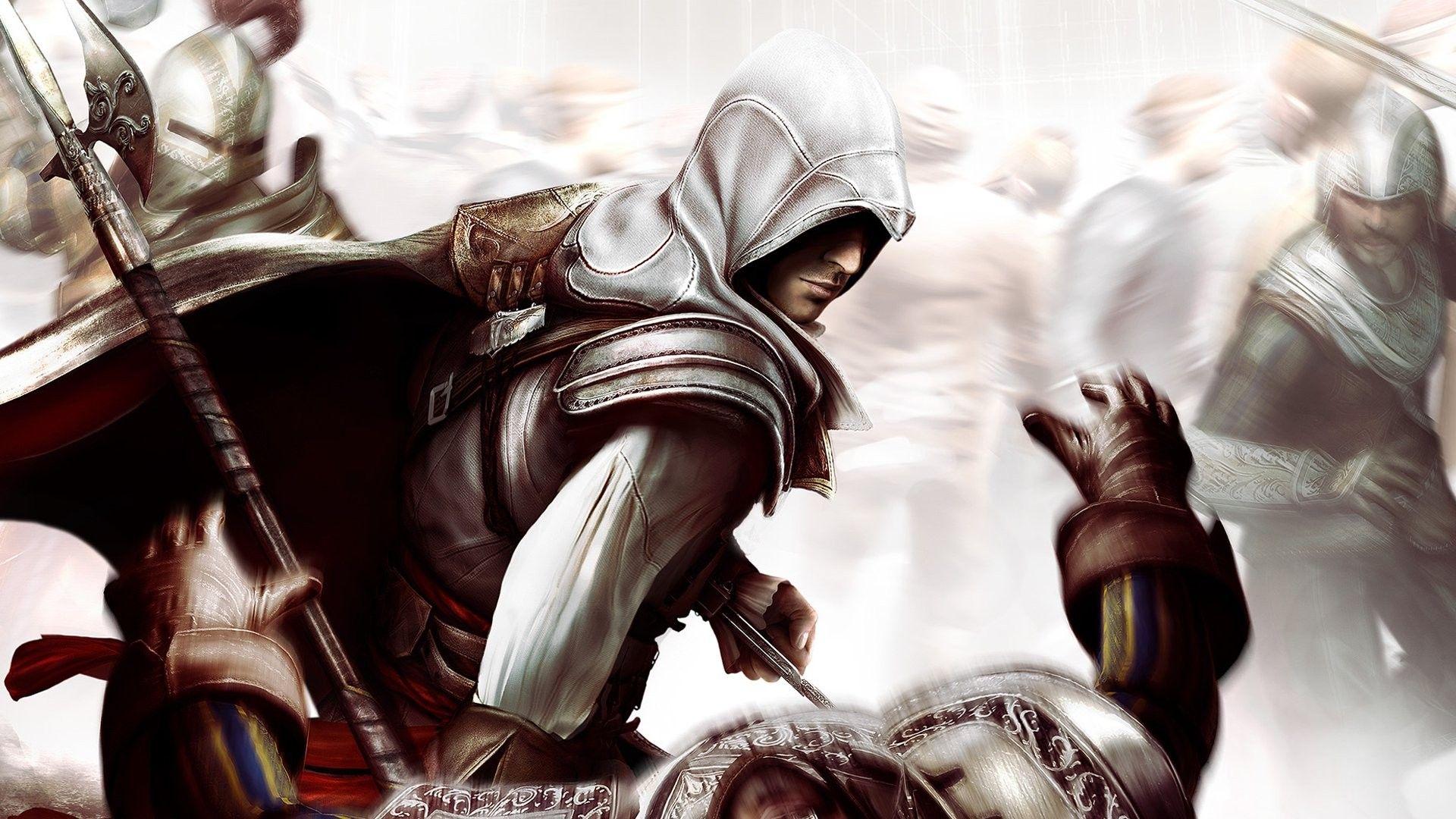
An inspired score
The role of composers during a game’s development can vary. Some come in late and apply their music to what’s been made already, while others, like The Last of Us composer Gustavo Santaolalla, have said that they prefer getting involved from the beginning so as to work closely with the script. This is something Kyd shares.
“I definitely like being involved early on, so I can see how the team is shaping the game. And I can see what decisions they're taking and why they're taking them. It makes it easier for me to write something that feels like it's getting really close to the game and it's part of the game development process.”
This approach is something that impacts how Kyd writes the music for the scores too. “I did take different approaches in the different Assassin's Creed scores. For example, in Assassin's Creed Valhalla, that score is based on acoustic instrument performances. So every sound you hear was performed by an acoustic instrument that I performed myself and then went back and treated them and filtered them and created something modern with them. That was a very different approach, I've never done that before.”
But each game is different after all, and each development process is its own, and the different approaches and sources of inspiration Kyd uses have become apparent, particularly when comparing scores throughout the series. This particularly comes from the locations and settings of the games.
“The thing about those earlier games from the Ezio trilogy is that they mostly took place in cities. So you're scoring a city environment, a bustling, busy, full of people, full of things happening, city environment,” he describes. “Then you have something like Valhalla, where you have these incredibly beautiful vistas and landscapes. And you just feel like you're walking through Norway or England, and it just is a very, very different feeling that I felt I had to capture.

“The scope of Valhalla is so incredibly huge. It's incredible. The amount of content that's in their stories and the side quests, there's just so much great stuff in there.”
And some of that ‘great stuff’ for inspiration comes from the experience of the time period too, with Kyd wanting his music for Valhalla to evoke what it was like to actually live in 9th-century Norway or England. “It's very brutal, it's very raw, life at that time in history at these places… it was hard, right? And I wanted to capture that in the music, and especially a sense of being outdoors.” This approach of trying to capture living outdoors at the time went as far as moving out of recording studios in order to achieve what he wanted: “I wanted to create a sound that sounded like you were outside in the elements. Some of the music [and] some of the instruments were recorded specifically outside”.
Taking this further, there was also an opportunity for the music to be played ‘like a Viking’ to offer further authenticity. “For Valhalla, I remember there was a lot of focus on creating a soundtrack that sounded like you were walking outside as a Viking, so all the instruments were performed by me ‘as’ a Viking”. He goes on to say this was achieved because: “I didn't know how to play them, which was perfect. I didn't want some amazing soloist.” This hands-on approach is present throughout Valhalla’s soundtrack from tracks like ‘Kingdom of Wessex’ with its arpeggiating fingerpicking guitar or the stringed instruments and beating drums on ‘Leaving Valhalla’ - much of the score beautifully mixes the looseness of hand-played instruments with perfectly-processed mixes.
Having favorites and 'that' theme
As we near the end of our interview, I was keen to get Kyd's personal thoughts on the series and which games and scores he holds as favorites from across the years.
“My favorite game is Brotherhood. I of course love Assassin's Creed 2, [but] I felt they really perfected it in Brotherhood. The gameplay is like Assassin's Creed 2, but even better, so my game is definitely Brotherhood.”
Many players’ and fans’ favorite might well be Assassin’s Creed 2, and synonymous with that is the ‘Ezio’s Family’ tune that debuted in that game. It appears in playlists and videos across the internet and is held very dearly in the hearts of fans of the series. I had to enquire about the impact this had on the theme’s composer and asked Kyd what it was like to have composed one of the most well-loved and famous video game tunes ever committed to the medium.
“It's pretty surreal. If somebody was to come to me [now] and say, ‘Hey, we want you to compose a theme that's going to be that famous’, I don't even think you could do it,’” Kyd exclaims. “I don't think anyone could do it, because it would just be too much pressure.”
As well as the fondness for the reaction and impact it has had, Kyd also has great fondness for Ezio’s Family as a piece of music, how it came about, and then how it continues to evolve years after it was first put together.
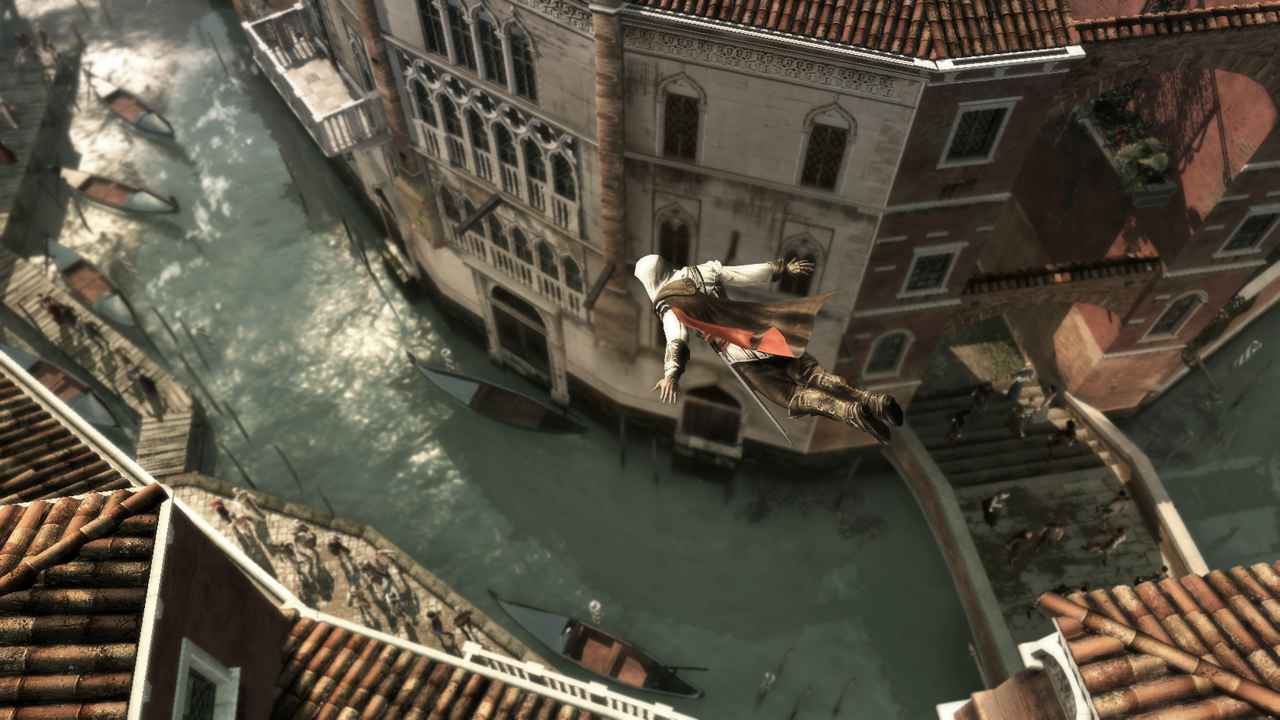
“I just love how Ezio’s Family happened organically. The theme started with ‘Earth’ [another tune on AC2’s soundtrack], that's where the theme was first introduced. And after ‘Earth’, I felt really strongly we needed an orchestral version of that theme - I thought, ‘Hey, why is the orchestra not performing that theme, we should have that version’. And Ubisoft was completely behind that idea.”
However, the implementation and use of the finalized theme were less than straightforward: “We didn't at the time really have any specific places for it. And then when everybody heard the finished results, you know, it was like, ‘That’s going in the opening, right!?’. I just remember seeing that cinematic of the opening, and [saying] ‘Let's use Ezio’s Family there’. We put it in and it was like, ‘yeah, that feels good’.”
Ezio’s Family lived on from that moment and has appeared in almost every Assassin’s Creed game since. It often gets special treatment by other composers too when they score games - something Kyd describes as “awesome,” adding that he loves “hearing the new renditions of the theme. And it always surprises me in the directions it goes and in the direction that you can take it.” In Kyd’s words, Ezio’s Family has become “so synonymous with Assassin's Creed”. This is absolutely true; a game feels strange without a version of it now, and it’s helped to create some incredibly powerful and memorable moments throughout the series.
These moments, powered by beautiful and instantly memorable music and gripping stories, and iconic imagery create gaming moments that are burned into people’s memories and experiences. The role of the former cannot be downplayed anymore or shrugged off as a separate layer to a game that gets added down the line.
We didn’t find out if Kyd was involved with the upcoming Assassin’s Creed Shadows coming in November - despite that famous tune being in the game’s reveal trailer. However, if he is, then expect more of these moments later this year when video game music, action, and visuals combine perfectly once again.
You might also like...
- Everything we know about Assassin's Creed Jade
- All the info on Ubisoft's new Assassin's Creed Infinity platform
- The latest information on Assassin's Creed Hexe







